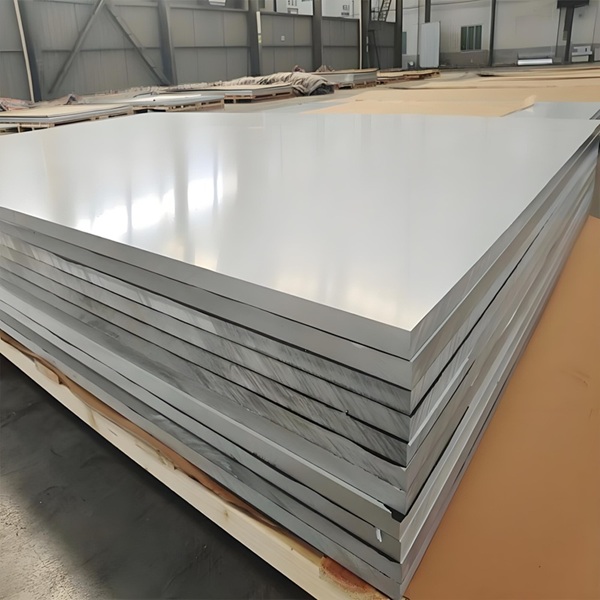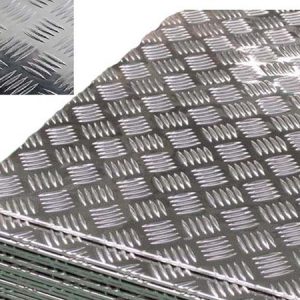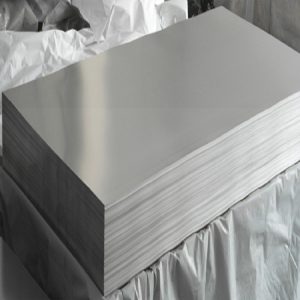Penerangan
Aluminum Plate is a cornerstone material in marine engineering due to its unique combination of lightweight properties, rintangan kakisan, and strength. Among the most widely used alloys for marine applications are 5083, 5086, dan 6061. This article explores their properties, differences, and suitability for marine environments.
Marine-grade aluminum alloys are designed to withstand harsh saltwater environments, resisting corrosion while maintaining structural integrity. Key requirements include:
- Saltwater corrosion resistance
- High strength-to-weight ratio
- Weldability and formability
- Resistance to stress corrosion cracking (SCC)
yang 5siri xxx (magnesium-based) dan 6siri xxx (magnesium-silicon-based) alloys dominate marine applications. Below, we compare 5083, 5086, dan 6061.
aluminium Plate 5083: The Gold Standard for Marine Applications
Composition:
- Primary Alloying Elements: 4–4.9% Mg, 0.4–1% Mn
- Temper: Typically H116 or H321 (improved corrosion resistance).
Properties:
- Kekuatan: High tensile strength (~290 MPa) and excellent toughness.
- Rintangan kakisan: Outstanding resistance to seawater and industrial chemicals.
- Kebolehkalasan: Excellent, retains strength after welding.
- Marine Applications:
- Ship hulls, decks, and superstructures.
- Offshore platforms and buoys.
- Cryogenic storage tanks (due to low-temperature performance).
Advantages:
- Superior performance in aggressive marine environments.
- Ideal for load-bearing structures exposed to saltwater.
3. aluminium Plate 5086: A Close Contender
Composition:
- Primary Alloying Elements: 3.5–4.5% Mg, 0.2–0.7% Mn
- Temper: H116 or H321.
Properties:
- Kekuatan: Slightly lower than 5083 but still robust (~270 MPa tensile strength).
- Rintangan kakisan: Excellent, comparable to 5083.
- Kebolehbaburan: Better than 5083, making it easier to shape.
Marine Applications:
- Boat hulls and gangways.
- Marine railings and walkways.
- Pressure vessels and tankers.
Advantages:
- Cost-effective alternative to 5083 for moderately stressed components.
- Excellent balance of strength, rintangan kakisan, dan kebolehkerjaan.
4. aluminium Plate 6061: The Versatile Structural Alloy
Composition:
- Primary Alloying Elements: 0.8–1.2% Mg, 0.4–0.8% Si (heat-treatable).
- Temper: T6 (solution heat-treated and artificially aged).
Properties:
- Kekuatan: High tensile strength (~310 MPa) but less corrosion-resistant than 5xxx alloys.
- di mesin: Excellent, ideal for complex parts.
- Rintangan kakisan: Good in mild marine environments but may require protective coatings in harsh conditions.
Marine Applications:
- Fittings, masts, and hardware.
- Small boat components (e.g., frames, brackets).
- Non-immersed structures like cabin components.
Advantages:
- Superior machinability and weldability.
- High strength for structural parts not directly exposed to seawater.
5. Key Differences Between 5083, 5086, dan 6061
| Property | 5083 | 5086 | 6061 |
|---|---|---|---|
| Rintangan kakisan | Excellent (marin) | Excellent (marin) | Baik (needs coating) |
| Kekuatan | tinggi | Moderate-High | Very High |
| Primary Use | Ship hulls, offshore | Marine structures | Structural fittings |
| Kebolehkalasan | Excellent | Excellent | Baik |
| Cost | tinggi | Moderate | Moderate |
6. Fabrication Tips for Marine Aluminum Plates
- Welding:
- Use 5356 atau 5183 filler wire for 5xxx alloys.
- Avoid excessive heat to prevent magnesium segregation in 5083/5086.
- Corrosion Protection:
- Anodize or apply marine-grade coatings (e.g., epoxy) kepada 6061.
- Avoid galvanic corrosion by isolating aluminum from stainless steel or copper.
- Design Considerations:
- Use 5xxx alloys for immersed components.
- Opt for 6061 in low-corrosion, high-stress areas.
7. Sustainability and Recycling
- Aluminum is 100% recyclable, reducing environmental impact.
- Marine-grade alloys retain properties after recycling, supporting circular economy goals.
Choosing the right aluminum alloy for marine applications depends on balancing strength, rintangan kakisan, and cost:
- 5083/5086: Best for immersed, high-stress marine structures.
- 6061: Ideal for non-immersed, machined components.
For projects requiring direct seawater exposure, 5083 dan 5086 are unmatched. Sementara itu, 6061 offers versatility for structural parts in less corrosive environments. Always consult with suppliers to ensure compliance with marine standards like ASTM B928 (for 5xxx alloys) atau AMS 4117 (untuk 6061).





-
-
-